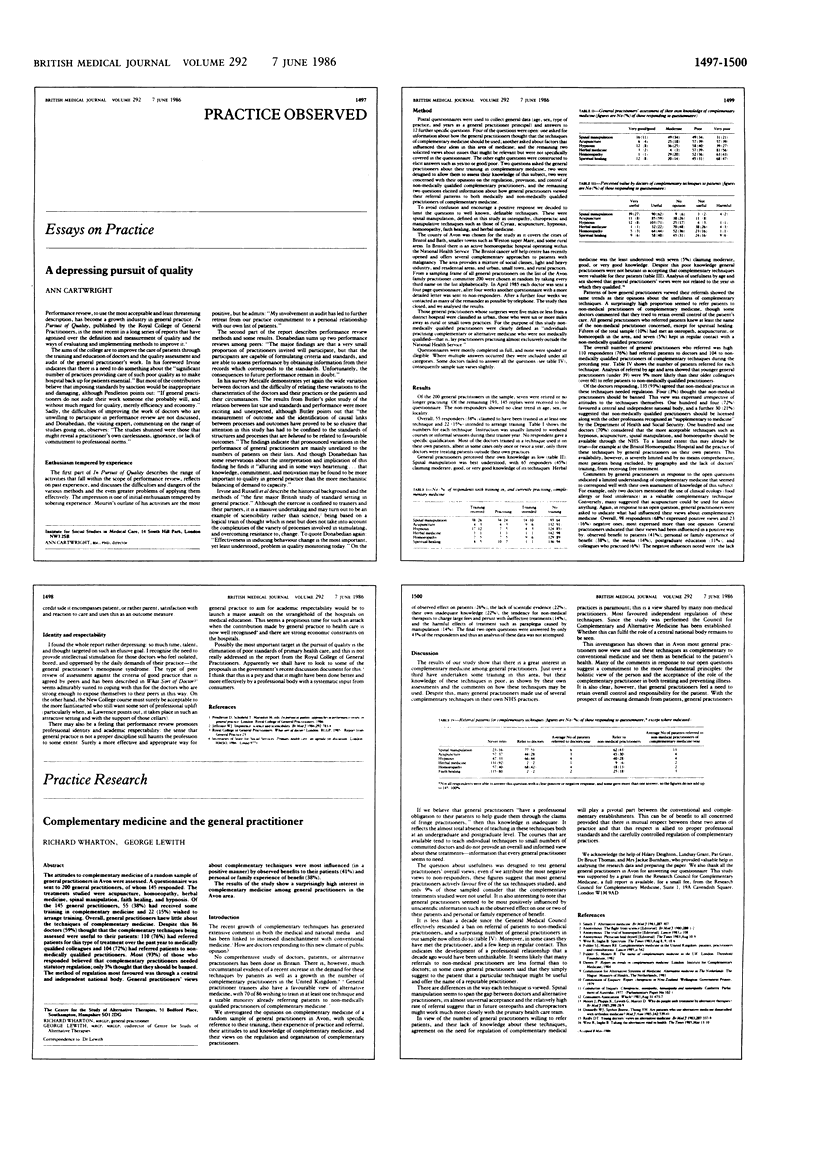Abstract
The attitudes to complementary medicine of a random sample of general practitioners in Avon were assessed. A questionnaire was sent to 200 general practitioners, of whom 145 responded. The treatments studied were acupuncture, homoeopathy, herbal medicine, spinal manipulation, faith healing, and hypnosis. Of the 145 general practitioners, 55 (38%) had received some training in complementary medicine and 22 (15%) wished to arrange training. Overall, general practitioners knew little about the techniques of complementary medicine. Despite this 86 doctors (59%) thought that the complementary techniques being assessed were useful to their patients: 110 (76%) had referred patients for this type of treatment over the past year to medically qualified colleagues and 104 (72%) had referred patients to non-medically qualified practitioners. Most (93%) of those who responded believed that complementary practitioners needed statutory regulation; only 3% thought that they should be banned. The method of regulation most favoured was through a central and independent national body. General practitioners' views about complementary techniques were most influenced (in a positive manner) by observed benefits to their patients (41%) and personal or family experience of benefit (38%). The results of the study show a surprisingly high interest in complementary medicine among general practitioners in the Avon area.
Full text
PDFPage 1497-1500



